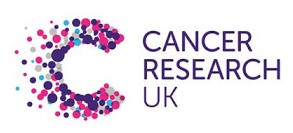Analytical scientists and cancer researchers come together to form new cancer early detection collaborations
Diagnosing cancer early is key to increasing patient survival. Crucial to achieving this is early detection research, which aims to advance the science and technology that allows us to detect cancer.
The sharing of ideas and expertise is essential in moving scientific research forward to unlock new discoveries. On 5 February 2021, The Analytical CRUK main Division and Cancer Research UK (CRUK) hosted a joint online workshop and networking event, Measuring Cancer Earlier. This brought together 60 researchers representing the analytical and cancer research communities to explore the challenges and opportunities for early detection cancer research.
By working together and combining the unique strengths of both these communities, the Analytical Division and CRUK hope to facilitate significant progress in early detection that could not be achieved by either groups alone.
As part of Cancer Research UK’s wider efforts in bolstering early detection of cancer research, we recognise that it is vital to bring together expertise not only from cancer biology, but perspectives and approaches from other disciplines like analytical sciences, in order to tackle the toughest challenges facing the field.

The workshop, chaired by Duncan Graham (University of Strathclyde), featured keynote speakers Sam Janes (UCL) and Molly Stevens (Imperial College London), who shared their clinical and biosensing perspectives on cancer early detection. CRUK funding collaborators, Dave Carter (Oxford Brookes University/Evox) and Bhavik Patel (Brighton University), also shared their experiences of working together as a multidisciplinary team on an early detection problem.
The inspirational talks stimulated discussions between the two communities on the challenges that would benefit multidisciplinary collaboration and opportunities for novel analytical methods for cancer early detection, as well as improving the accuracy of measuring early cancer markers.
The structured networking sessions gave the communities further opportunities to catalyse interdisciplinary collaborations between analytical scientists and cancer researchers.
Workshop participants said it was a ‘unique opportunity to focus on interdisciplinary research on a very important subject’ and ‘a very valuable meeting to learn analytic knowledge/methods and build up networks with analytic experts for multidisciplinary cancer research‘.
We look forward to seeing future collaborations come tome together as a result of this activity.
You can read more about CRUK research opportunities in early detection.
by Leanne Marle, Programme Manager, Science Divisions Team
March 2021
Contact us
- Email:
- Dr Alessia Millemaggi
